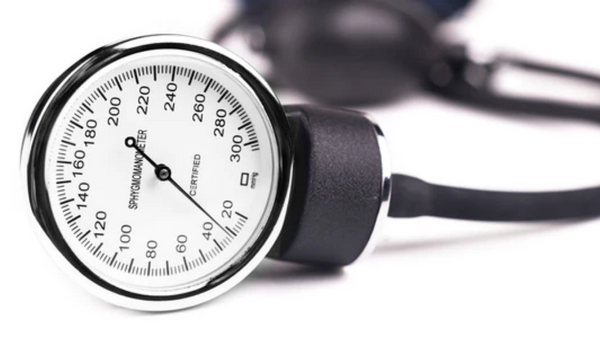Hashimoto's thyroiditis is an autoimmune disease that affects the thyroid gland. As a result of Hashimoto's, the thyroid gland becomes underactive, which is characterized by a lack of energy and motivation, fatigue, weight gain and sensitivity to cold.
Approximately 4-8 million people are affected by this in Germany. [1]
Hashimoto's is considered incurable in conventional medicine and patients usually have to take medication for life. However, there are a number of things that can be done to limit the breakdown of thyroid tissue and even partially regenerate it. Diet and a good supply of essential nutrients play an important role here.
In the classic treatment of Hashimoto, thyroid hormones (such as L-thyroxine) are usually used. Although these can compensate for the hypothyroidism and alleviate many symptoms, they unfortunately do not prevent the destruction of the thyroid tissue.
Nutrients can have a very good complementary effect here. They can support the function of the thyroid and help keep autoimmune reactions in check.
IT'S WORTH READING:
AS A SMALL GIFT, WE HAVE CREATED A DISCOUNT CODE FOR YOU. YOU CAN FIND IT AT THE END OF THE BLOG POST.
Selenium
Selenium is important for the formation and function of thyroid hormones. Selenium also scavenges free radicals that can damage the thyroid and helps protect the organ from harmful autoimmune reactions. [2] It is particularly important to ensure a good supply of selenium when taking iodine supplements (a controversial topic in Hashimoto's disease).
Since Germany is a selenium-deficient area, many Germans do not have an adequate supply of selenium. Supplementation can therefore be useful for many people, even regardless of Hashimoto. However, selenium is toxic in high doses. It is therefore advisable to have your selenium status checked regularly. The risk of overdose is significantly lower with sodium selenite than with selenomethionine. If you supplement selenium "blindly" without measuring selenium beforehand, sodium selenite is the better choice.

Iodine
Iodine is part of the thyroid hormones and is therefore of fundamental importance for the function of the thyroid. [3] People with Hashimoto's are often warned against taking iodine supplements. The reason for this is that iodine promotes the formation of free radicals in the thyroid and can therefore cause additional damage to the thyroid tissue. Nevertheless, iodine is an essential nutrient - even for people with Hashimoto's. Before supplementing with iodine, however, other nutrients should first be replenished, especially selenium.
Zinc
Zinc is known to be important for the immune system. But zinc is also very important for the function of thyroid hormones. [4] In autoimmune diseases, there is also an increased need for zinc.
Vitamin D
Vitamin D is also important for the immune system. At the same time, it has an immune-regulating effect and thus helps to keep chronic inflammation in check. That is why people with autoimmune diseases should always ensure they have a good supply of vitamin D. But vitamin D is also important for the function of the thyroid: it is important for binding thyroid hormones to the cells. [5]
Magnesium
Magnesium is involved in an incredible number of processes in the body. That is why it is also known as the master mineral. Unfortunately, magnesium is often neglected in the diet and a deficiency is widespread.
Magnesium is also important for the function of thyroid hormones. [6] Magnesium also promotes the absorption of vitamin D.

Iron
Iron is needed for the production of thyroid hormones. Iron deficiency is particularly common among women. [7]
Vitamin A
Vitamin A is important for thyroid function. Vitamin A supplementation can lower TSH levels. [8]
However, vitamin A should not be supplemented “blindly” as it is toxic in high doses. This can be particularly dangerous during pregnancy.
Omega-3
Omega-3 fatty acids have anti-inflammatory effects. They can therefore reduce inflammatory reactions caused by the autoimmune process. [9]
B vitamins
B vitamins are very important for energy metabolism. Thyroid hormones, in turn, regulate energy metabolism. However, this cannot function optimally if essential nutrients are lacking. [10]
People with Hashimoto also have an increased risk of deficiency in B vitamins, especially vitamin B12 .

Conclusion: Nutrients can support Hashimoto treatment
Nutrients can effectively support the treatment of Hashimoto. However, the nutrient status should be checked regularly to avoid overdose. High doses often have to be used to achieve good effectiveness. This should be done in collaboration with an experienced therapist or alternative practitioner.
As promised, you will receive a 10% voucher on the following products:
Vitamin B complex , vitamin b complex forte , vitamin b12 , Magnesium , Vitamin D (capsules) , Zinc , Selenium tablets , Iodine from organic kelp , Omega-3
Simply copy the code HASHI+V10 and enter it at checkout.
To the products!
[1] https://pubmed.ncbi.nlm.nih.gov/15671771/
[2] https://pubmed.ncbi.nlm.nih.gov/1384621/
[3] https://www.ncbi.nlm.nih.gov/pmc/articles/PMC4049553/
[4] https://pubmed.ncbi.nlm.nih.gov/17541266/
[5] https://www.nature.com/articles/ejcn2014265
[6] https://www.ncbi.nlm.nih.gov/pmc/articles/PMC6028657/
[7] https://pubmed.ncbi.nlm.nih.gov/11099370/
[8] https://pubmed.ncbi.nlm.nih.gov/23378454/
[9] https://pubmed.ncbi.nlm.nih.gov/12480795/
[10] https://journals.sagepub.com/doi/pdf/10.1177/147323000703500301

















